Wise words from Goodwill truck employee
Ernest Kirk works at the Goodwill truck in the Paly parking lot and enjoys seeing the charitable spirit in donors.
Meet Ernest Kirk, the man who sits at the Goodwill truck in the Embarcadero parking lot at Palo Alto High School. Kirk was born and raised in Louisiana, then moved to the Bay Area during his teenage years. He lived in Oakland and San Francisco in the 1950s, and served in the Army in the early ‘60s. He was stationed in Europe for 18 months and returned to California just in time for the ‘60s movement — a time he greatly enjoyed. Today, outside of working with Goodwill, Kirk is an artist who paints black folk scenes. He enjoys reading and fishing. Kirk was kind enough to share some life experiences and words of wisdom for Paly students.
On working at the Goodwill truck:
“Once you’re over 50, you might start to realize it’s difficult to get jobs. Working at the truck keeps a roof over my head. I wouldn’t exactly say I’m happy, but I’m doing fine. If I could make a living off my art, well, that would be just wonderful. The good thing about working with Goodwill is witnessing the giving spirit. You see people from all walks of life with all types of personality come to give — the people who donate clothes with tags still attached, those nice folk who fold the clothes neatly and pack them, the people who are busy and just load the pants and shirts in. No matter what though, I get to see these people donating and I feel the giving spirit.”
On growing up in the Deep South as a young African American boy:
“I actually never did experience any negativity myself, although I sometimes heard about some of the mistreatment my grandma or other older members of my family may have experienced. I had a very sweet childhood — I remember catching fireflies, also the beautiful scenery that surrounded me. I am always very grateful that my parents exposed me to the problems an African American might have had to face in the past or in the present, but they never made me hateful or bitter toward others. I am lucky and thankful for that.”
On education in Oakland in the ‘60s compared to today:
“When I was growing up in Oakland, the public school system was excellent. I was taught very well at school. All the supplies were provided and the teachers were fine. I went to an after-school program where they fed me graham crackers and milk. Today, it’s very different. The youth of parts of Oakland are struggling in life and school, probably because they don’t have the same support that people of my generation had back many decades ago. It’s pretty sad. Oakland is a beautiful city.”
On reading, life-long learning and his own favorite literature picks:
“Reading is it. If you don’t read, you don’t have anything. Reading gives you the opportunity to escape and to explore. It’s also important to read so you know where you come from and the history of where you live. It’s shocking to me how some young people in our country, who don’t read up on our history, know less about America than new immigrants, who have to take a citizen test and learn about the United States. It’s crazy. I like to read a little bit of everything. [Paly English teacher] Lucy [Filppu] and I started conversing after she saw me reading The Lovely Bones one day at the truck. I deeply enjoyed Sherlock Holmes mysteries in my youth. Moby Dick is a classic. I’ve also read a lot of art books and psychology stuff. Really, I’ll pick up and read anything that captures my interest.”
On pursuing a lifestyle and career based on passion and interest:
“It’s very important to get an education. However, you should also be in touch with what you love. Today, we’re always talking about who’s gonna be the next Steve Jobs, or who’s gonna be the next big inventor or doctor. But there’s kids out there who don’t want to do that. There’s youth who might be interested in carpentry or what not, and we need those kids too. You have to know what you are passionate about and try and pursue a career out of that. Palo Alto is a Mecca, filled with amazing stories, amazing people. It’s a great place for young people to realize their dreams and to go out and chase them. I look at this city as a very special place.”
On his art career:
“I have loved art for much of my life, and I’ve been an artist for decades. I’ve been a member of the Sonoma Valley Art Club and have participated in several art shows in the Bay Area. I’ve sold a few pieces. Early in my art endeavor, I’d give my art pieces away — now I don’t do that anymore. I’m currently have archival prints made of my original pieces. It’s been a way for me to make something out of my life [and] accomplish something. That’s been my attitude [with art]. I’ve read and looked at the works of many of the great masters of art, Rembrandt and all those Renaissance guys. For me, I paint scenes of black folk — historic stuff too. Whether they’re working in the fields or resting in a family room, I paint the life of the African American man, woman and family. I focus on this topic because I am an African American man, and my roots are with this subject. A lot of my interest comes from feelings of inspiration and empathy that come with the African American story. I love what I do, and maybe after another year or two with the truck, I’m going to try and dedicate all my energy and time on my art career.
On his experience in the army and his 18 months in Europe:
“Something sort of funny is that all of this was actually started by a bet my friend and I made. We ended up going to the recruiting office. I passed the test and my friend didn’t. Then I decided to go through with it, and I was sent to Europe for 18 months. My time in Europe was life-changing. America is a new world, it’s a modern country. Europe is ancient — its art, its cities, its culture. The history, the cobblestone architecture…My biggest regret is I never took any photos during my time there.”
On returning from Europe to California in the ‘60s:
“I was in my early twenties. It was a great age to be experiencing the ‘60s movements. It was a time of peace and love — it really was beautiful and inspiring. Everyone was thinking how can we improve and make peace. People would hitchhike as a form of transportation and there would be no fear of violence or kidnapping. Today, people go out to hitchhike and they never come back. Times have changed.”
On love and family:
“I’m a man who is very big on family. I love to spend time with my family. I’m a very proud father of two daughters and a son. My kids are college graduates — very hard workers. I could not be more proud of them. I have a mother who is almost 100 years old! Lots of people don’t have good family relationships [and] people don’t talk to each other. I believe in saying ‘I love you.’ I always encourage people to tell the people they care about that they love them. It’s very important. Those three words can be very powerful.”
Ernest Kirk is a symbol of the incredible individuals and stories that lay embedded in all corners of our diverse community. There is much more to a person than we could ever guess at first glance — whether it be a politician, a banker,or a Goodwill donation-collector. He can be found at the truck on Tuesdays and Thursdays. Kirk’s art can be viewed and purchased on his online web-store blackfolkartist.com.
Your donation will support the student journalists of Palo Alto High School's newspaper

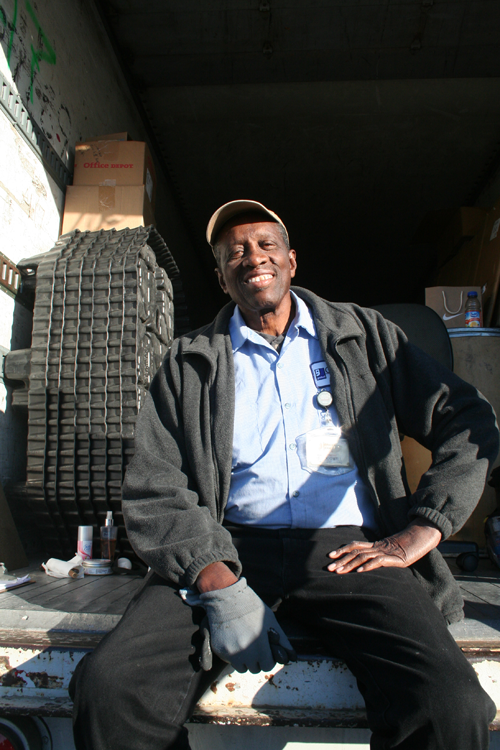
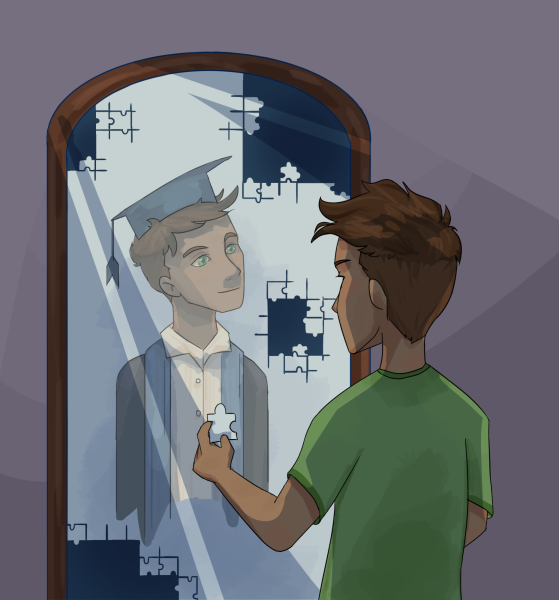
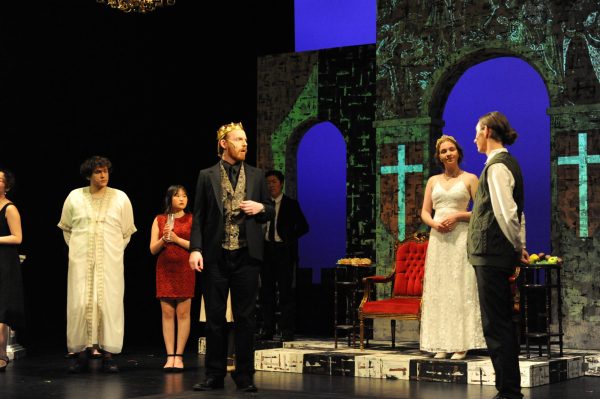
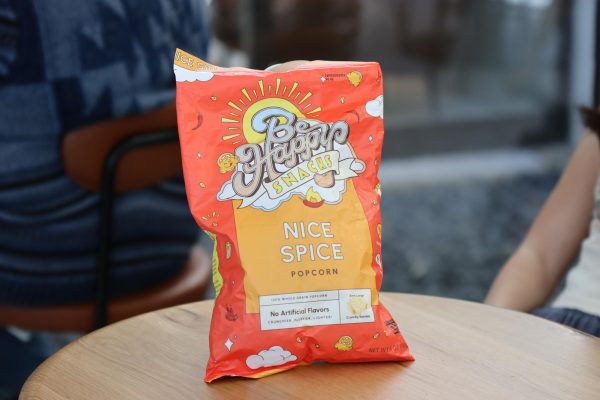
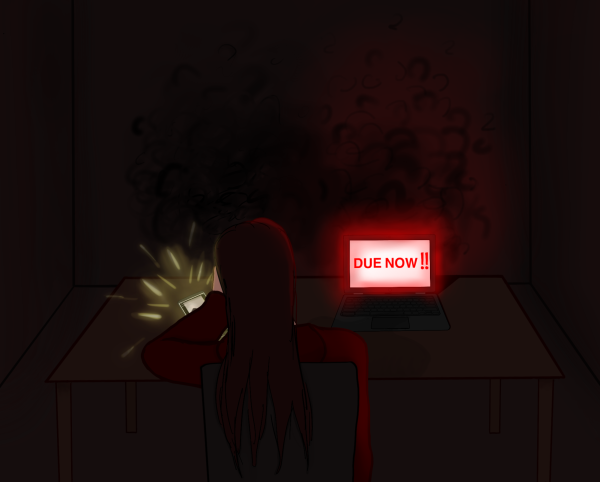
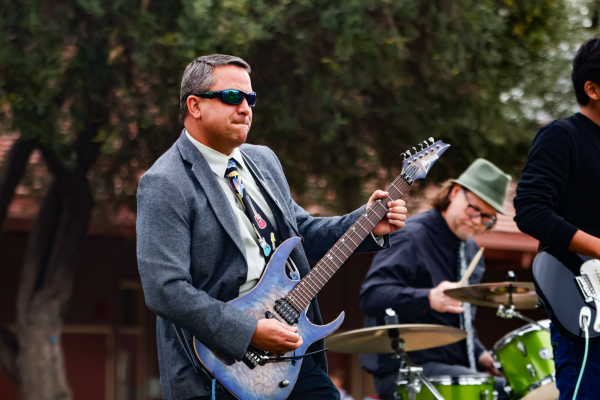
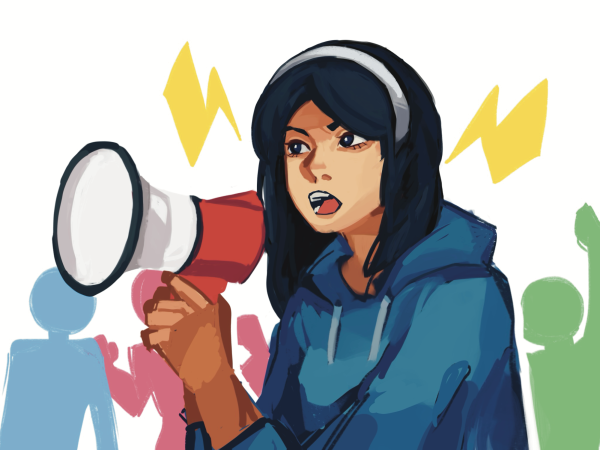
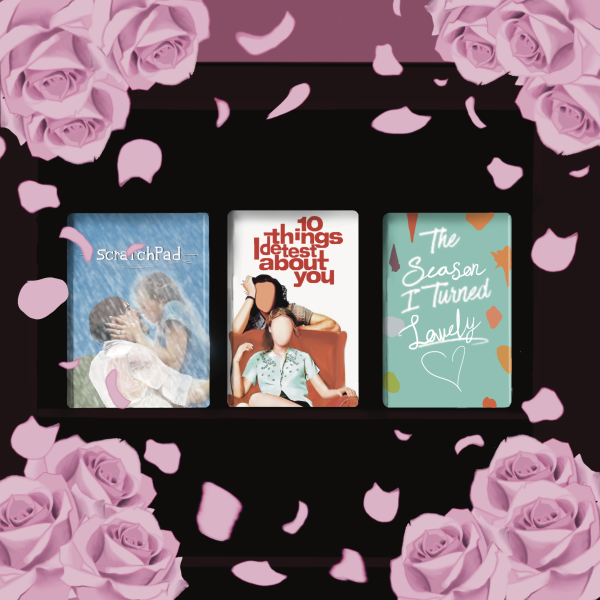

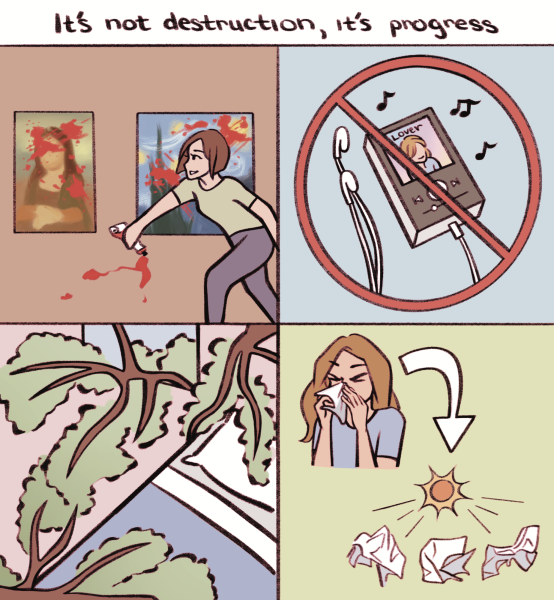
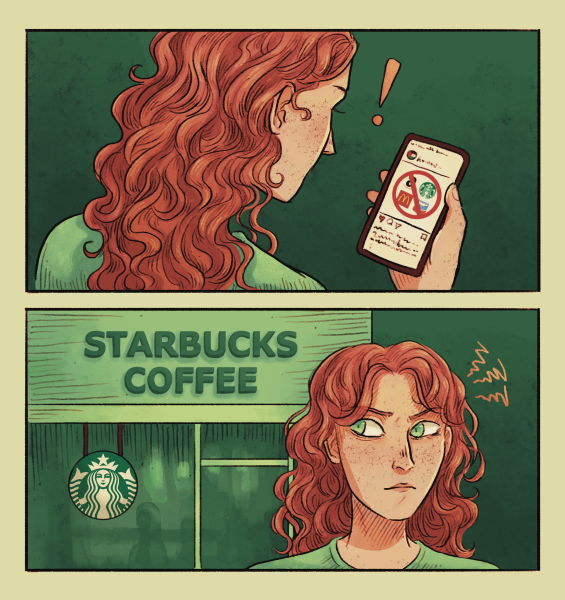


M.Kirk • Dec 15, 2013 at 10:09 am
That’ my dad! Thank you to all who took an interest in his story. I look forward to continuing to help him achieve his dream of making his art a business. My dad has the spirit and drive of a young man and it’s never too late to pursue our dreams. Here’s to being a life-long learner!!!!